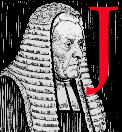 ohn Ruskin, like Thomas Carlyle, George Eliot, Robert Browning, and John Henry Newman, was raised as an Evangelical Anglican, and although he abandoned his earlier religious beliefs by 1858, his thought and writing long retained the mark of his early religion. Like all of these authors, he transferred evangelical interpretive methods, particularly those involving biblical typology, to art, literature, and society, and like Carlyle he also created the genre of Victorian sage-writing from conceptions of Old Testament prophecy.
ohn Ruskin, like Thomas Carlyle, George Eliot, Robert Browning, and John Henry Newman, was raised as an Evangelical Anglican, and although he abandoned his earlier religious beliefs by 1858, his thought and writing long retained the mark of his early religion. Like all of these authors, he transferred evangelical interpretive methods, particularly those involving biblical typology, to art, literature, and society, and like Carlyle he also created the genre of Victorian sage-writing from conceptions of Old Testament prophecy.
What happens to Evangelical zeal in Ruskin's art criticism? How does it affect his wrtings' tone and attitude toward the reader? In what ways does Ruskin transfer attitudes of religion to art and social criticism? Do you think this approach won over his Victorian readers and (or) alienated them? Affected those from different backgrounds differently? What could Ruskin expect from a reader who was one of his contemporaries that an author cannot count on today?
Last modified 27 November 2004